
























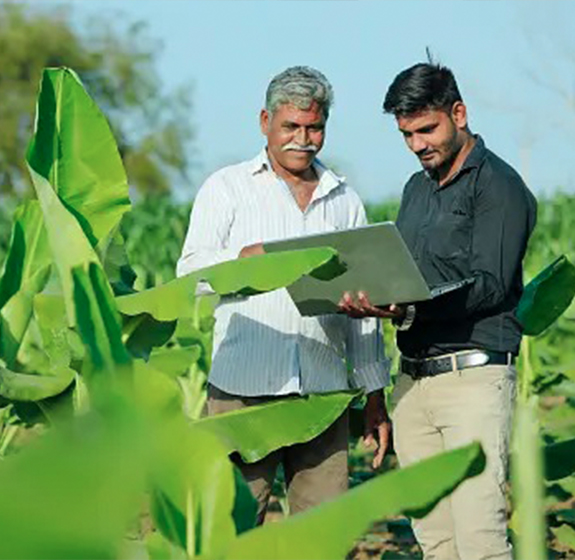
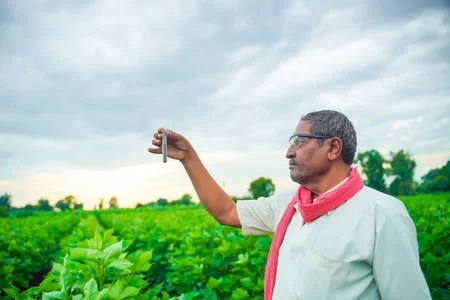
ABOUT US
Agrovision Farmers Producer Company Ltd. has established an initiative as a training centre to offer exceptional hands-on training to Farmers, FPOs, SHGs, Aspiring students, and Entrepreneurs. Agriculture, Food Processing, Tissue Culture and allied sectors have a substantial impact on the economic growth and prosperity of India. Agrovision Farmers Producer Company Ltd is an authorized training partner of Skill India initiative by government of India. The various aspects of agriculture, food processing and tissue culture are covered in the variety of training courses we provide. The manufacturing facility at the renowned agricultural institution Mahatma Phule Krishi Vidyapeeth, Rahuri, as well as the modern tissue culture laboratory are part of our well-established infrastructure for training activities. Training courses offered under tissue culture segment are accompanied by comprehensive consulting services for lab setup. It covers every aspect of lab establishment from basic laboratory protocols to intricate documentation procedures.
We offer comprehensive training in food processing as it adds value to agricultural products. A variety of significant factors such as raw materials, required equipment, scientific formulation, use of appropriate preservatives, handling and storage techniques, regulatory certification and marketing tactics are required for a successful product production process. A team of highly skilled professionals from our training program have instructed many entrepreneurs. It will include complete assistance to claim government schemes and subsidies if applicable.
Available Infrastructure
Manufacturing Unit
MPKV Unit Photographs
We have a reputable manufacturing facility in MPKV, Rahuri, a well known agricultural university. where we manufacture scrumptious and healthy goods including Juices, jams, pickles, candies, and a variety of spices. Our goal is to provide the finest products at reasonable prices. We are committed to sustaining product quality at the pinnacle of excellence.
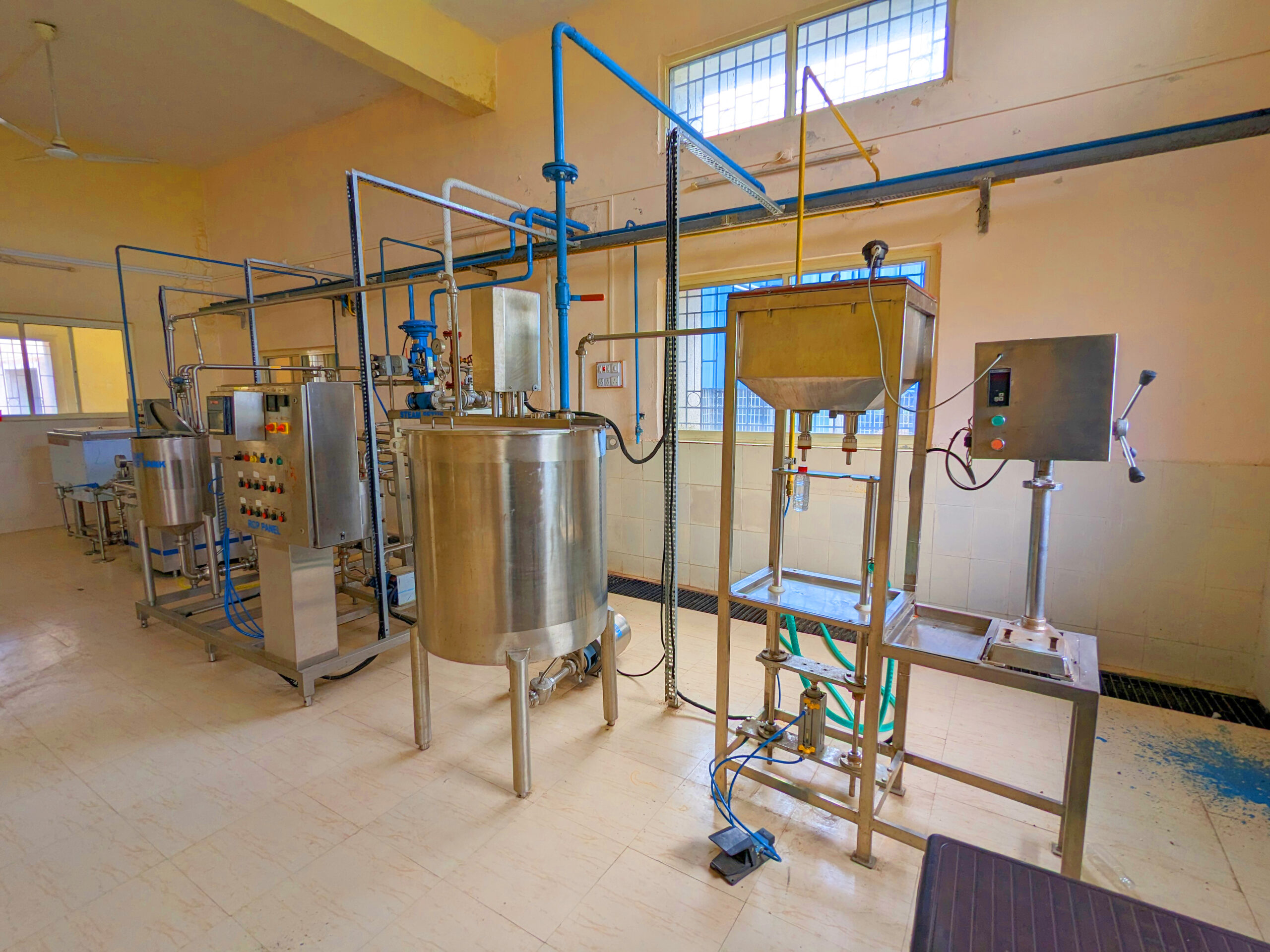
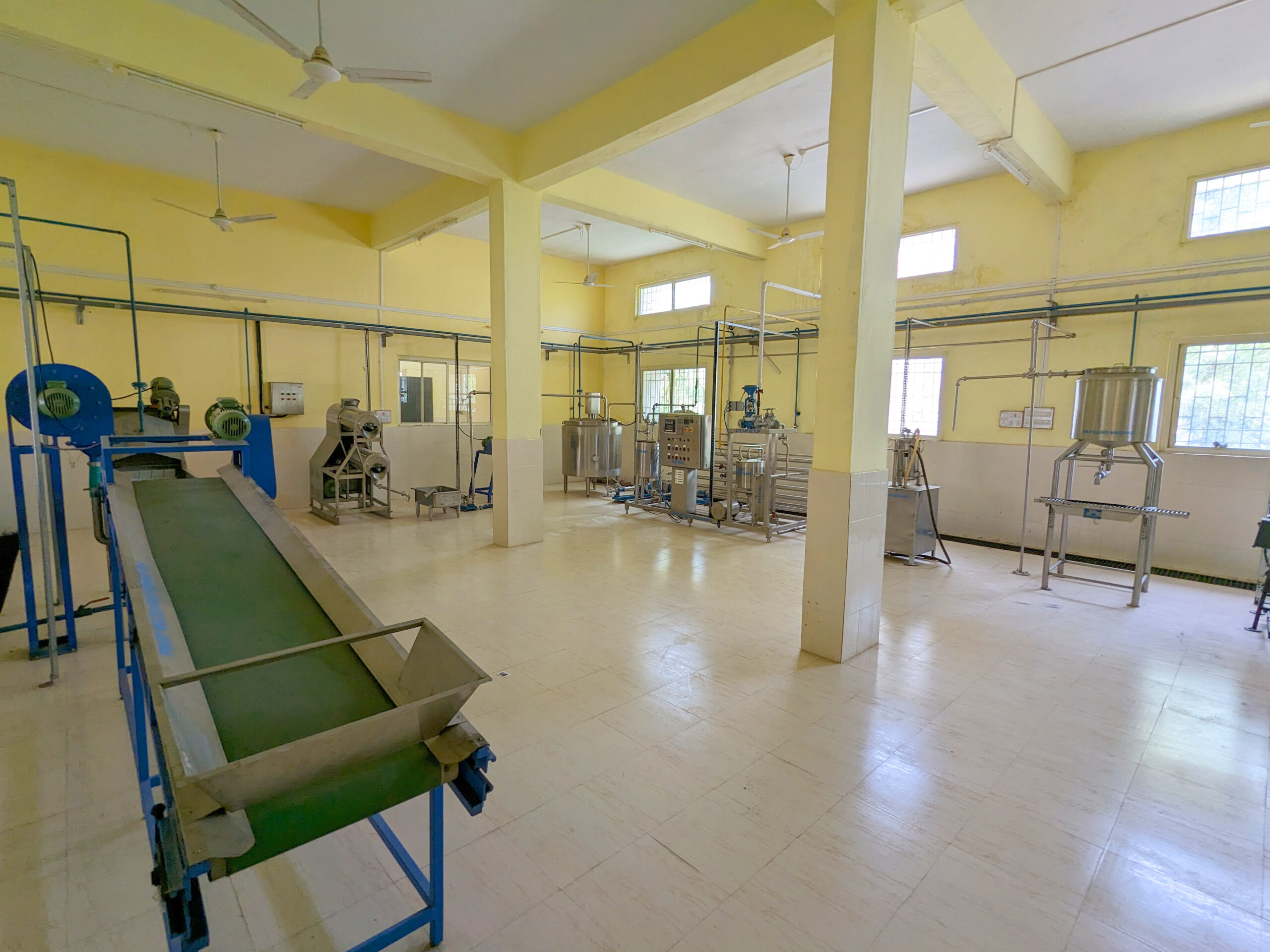
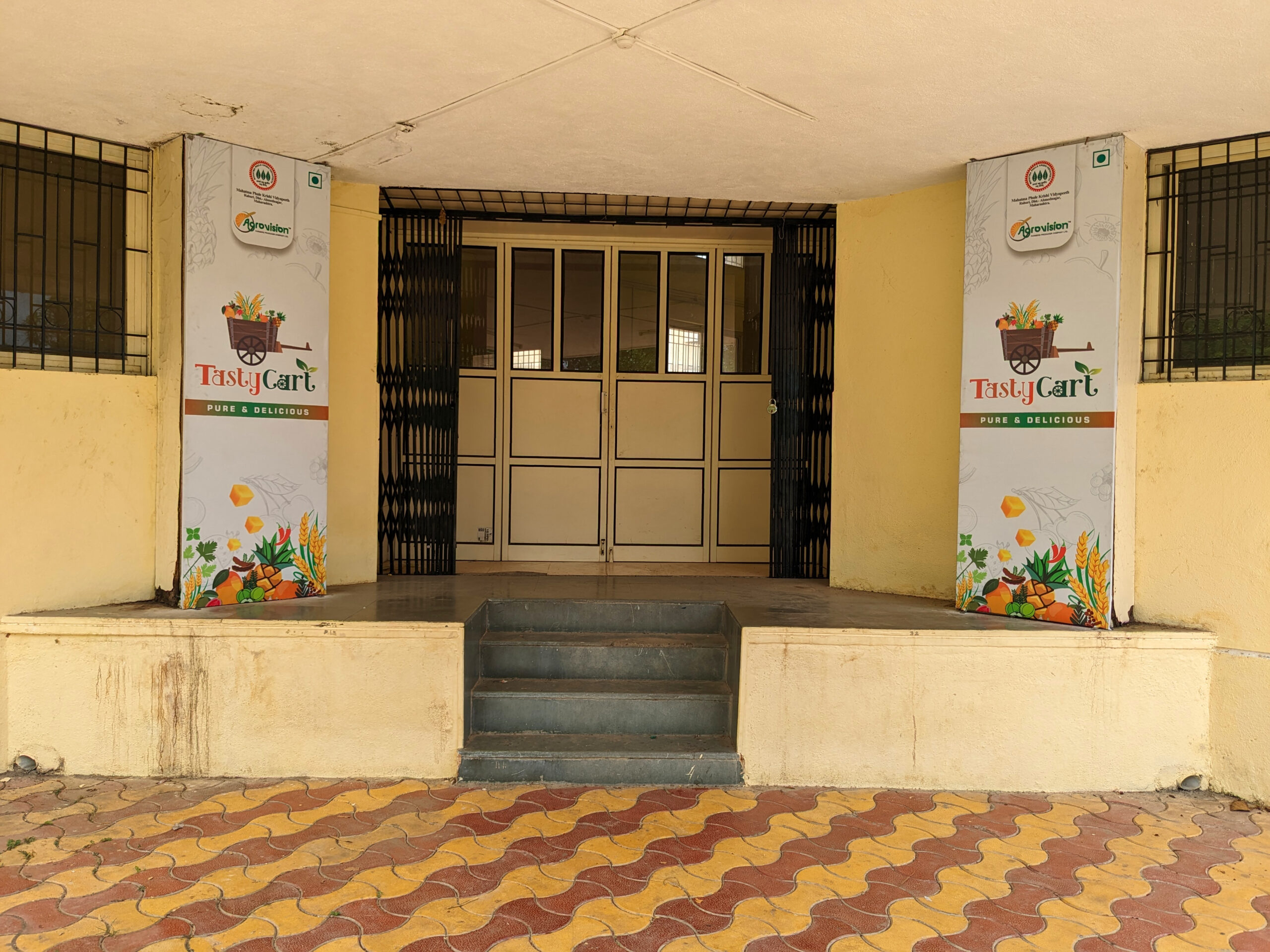
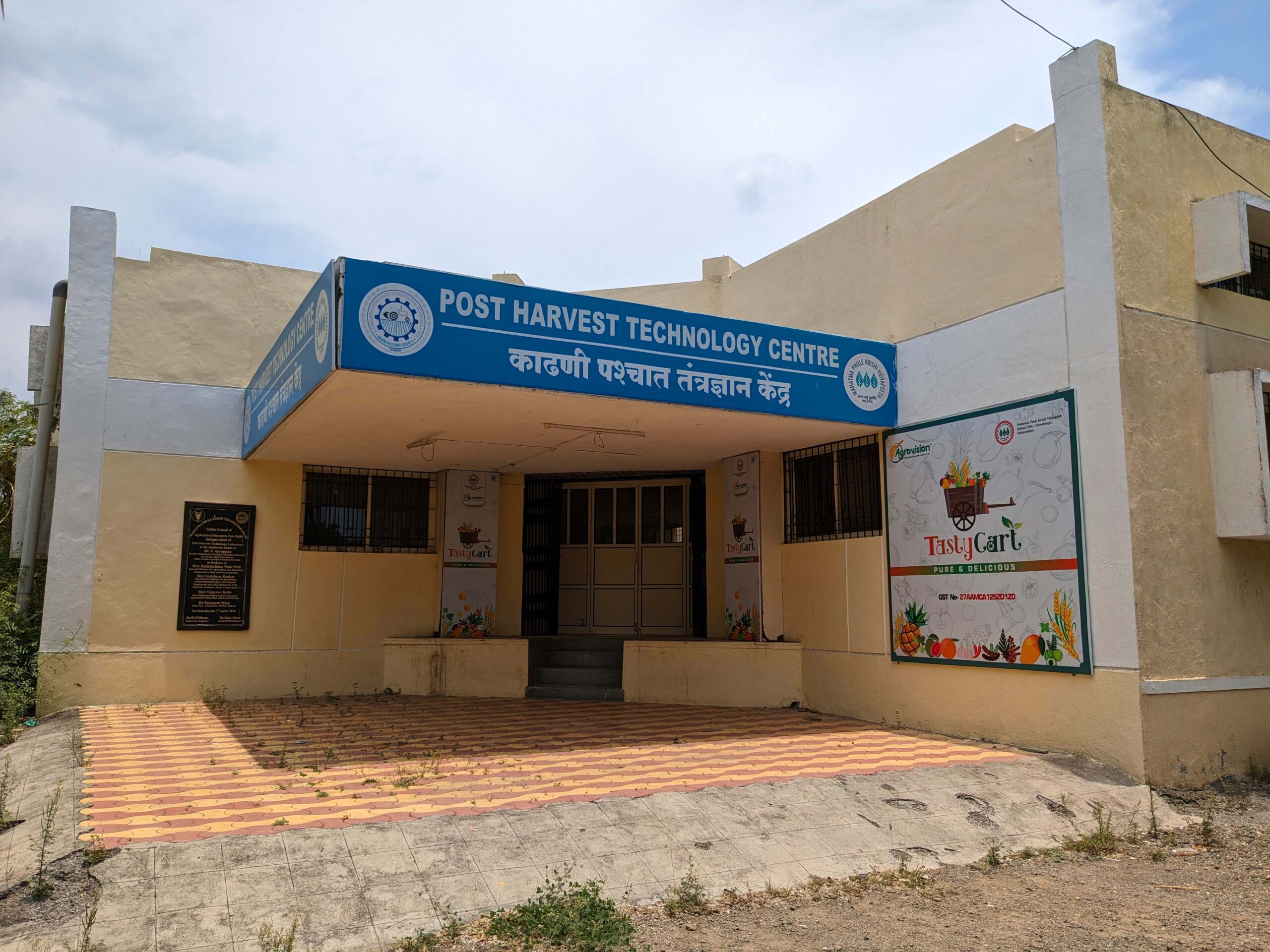
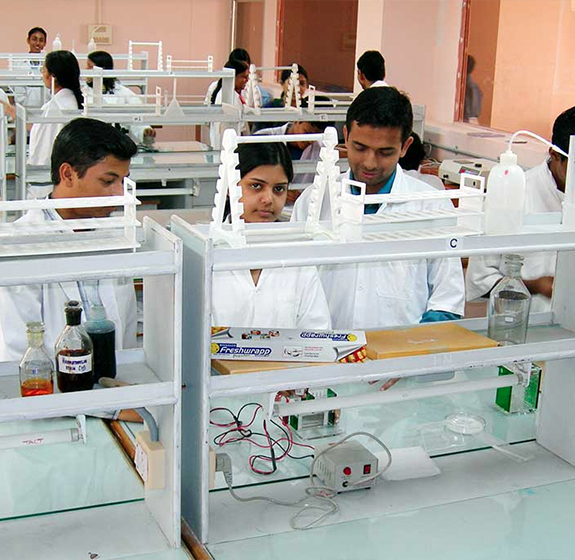

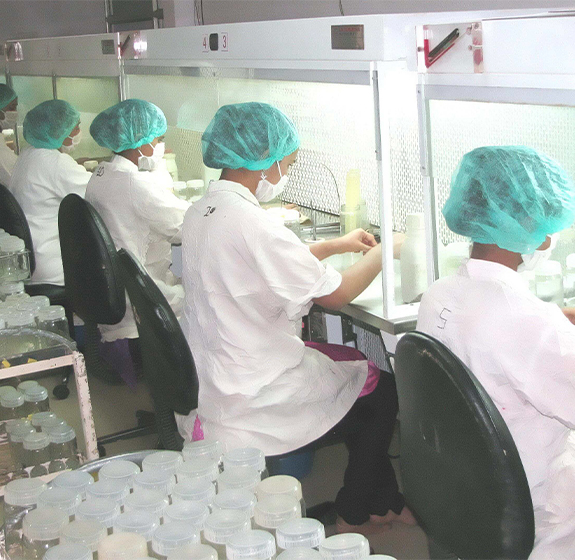
Available Infrastructure
Tissue Culture
1. Ultra Modern laboratory
Agrovision Farmers Producer Company Ltd. established a sophisticated tissue culture laboratory with modern equipment while executing by strict standards and international norms to ensure the highest-quality tissue culture products. To guarantee that our practises are free from contamination, we have a highly qualified and diligent staff operating under stringent regulations.
2. Hardening Chamber
We observe each stage in the production of premium planting material since we are committed to our values of giving farmers genuine material.To harden the sapling developed via tissue culture techniques, we have built a high-tech poly houses and green house employing a scientific approach across 1-acre area. Plant saplings require two stages of hardening: primary hardening takes place in a primary hardening chamber i.e Polyhouse, and secondary hardening occurs in a secondary hardening chamber i.e Green house

Honey bee Farmer

Pulses
Cultivator
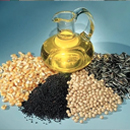
Oilseed Crop Grower

Cotton Cultivator
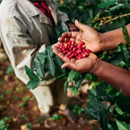
Coffee Plantation Worker

Coconut Grower cum Primary Processor

Floriculturist

Florist

Interior Landscaper

Nursery
Worker

Garden
Keeper

Medicinal and Aromatic Plants Grower

Micro-Irrigation Technician

Greenhouse Operator
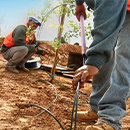
Irrigation Service Technician
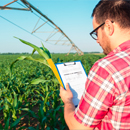
Farm Workshop Foreman / Supervisor

Small Organic Cultivator

Small Dairy Farmer

Backyard Poultry Farmer
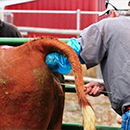
Artificial Insemination Technician

Livestock Service Provider
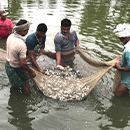
Aquaculture Worker
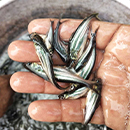
Fish Seed Grower
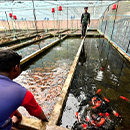
Ornamental Fish Farmer
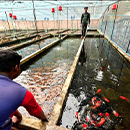
Fish
Retailer

Fisheries Extension Associate
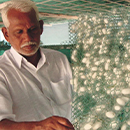
Sericulturist
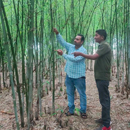
Bamboo
Grower
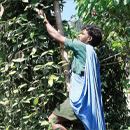
Non-Timber Forest Produce Harvester
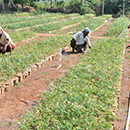
Forest Nursery Raiser

Solar Pump Technician
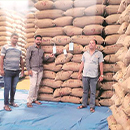
Agriculture Warehouse Worker
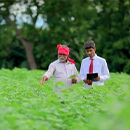
Agriculture Extension Service Provider

Small Mushroom Grower
Courses Offered
Technical related
- Forest Department
- 1. Forest Conservation and Management Techniques
- 2. Wildlife Protection and Biodiversity Preservation
- 3. Forest Fire Prevention and Management
- 4. Ecosystem Restoration and Afforestation
- 5. GIS and Remote Sensing for Forest Monitoring
- 6. Sustainable Forest Resource Management
- 7. Wildlife Rescue and Rehabilitation


- Agriculture Department
- 1. Modern Agricultural Techniques and Precision Farming.
- 2. Soil Health Management and Fertilizer Optimization.
- 3. Crop Disease Identification and Management
- 4. Agroforestry and Sustainable Farming Practices
- 5. Irrigation Systems and Water Management.
- 6. Post-Harvest Handling and Food Safety.
- 7. Organic Farming and Sustainable Agriculture
- Food Department
- 1. Food Safety and Quality Standards Compliance
- 2. Supply Chain Management in the Food Industry
- 3. Food Processing Technologies and Techniques
- 4. Nutrition and Dietary Guidelines
- 5. Food Packaging and Preservation Methods
- 6. Regulatory Compliance and Food Inspections
- 7. Food Business Management and Entrepreneurship


- Education Department
- 1. Blended Learning Strategies and Online Teaching Tools
- 2. Classroom Management and Student Engagement Techniques
- 3. Curriculum Development and Educational Technology Integration
- 4. Assessment and Evaluation in Education
- 5. Inclusive Education and Special Needs Teaching
- 6. Pedagogical Innovations for Effective Learning
- 7. Educational Leadership and Administration
- Tribal Department
- 1. Indigenous Community Development and Empowerment
- 2. Cultural Preservation and Heritage Management
- 3. Tribal Health and Nutrition Initiatives
- 4. Livelihood Diversification for Tribal Communities
- 5. Land Rights and Tribal Welfare Programs
- 6. Skill Development for Tribal Youth
- 7. Tribal Entrepreneurship and Business Development


- Rural Department
- 1. Rural Development Strategies and Policies
- 2. Community-Led Sustainable Development Initiatives
- 3. Rural Infrastructure Planning and Management
- 4. Microfinance and Financial Inclusion in Rural Areas
- 5. Rural Health and Sanitation Programs
- 6. Rural Livelihood Enhancement through Skill Training
- 7. Participatory Planning and Governance in Rural Contexts
- Police Department
- 1. Community Policing and Building Trust with Citizens
- 2. Cybercrime Investigation and Digital Forensics
- 3. Crisis Management and Emergency Response Training
- 4. Crime Prevention Techniques and Strategies
- 5. Human Rights and Ethics in Law Enforcement
- 6. Interpersonal Skills for Effective Communication
- 7. De-escalation Techniques and Conflict Resolution


- Women & Child Welfare Department
- 1. Gender Sensitization and Empowerment Programs
- 2. Child Protection and Safeguarding Techniques
- 3. Women's Health and Reproductive Rights Education
- 4. Legal Frameworks for Women and Child Welfare
- 5. Counseling and Support Services for Vulnerable Women and Children
- 6. Child Development and Early Childhood Education
- 7. Preventing Violence against Women and Children
- Technical
- Forest Department
- 1. Forest Conservation and Management Techniques
- 2. Wildlife Protection and Biodiversity Preservation
- 3. Forest Fire Prevention and Management
- 4. Ecosystem Restoration and Afforestation
- 5. GIS and Remote Sensing for Forest Monitoring
- 6. Sustainable Forest Resource Management
- 7. Wildlife Rescue and Rehabilitation
- Agriculture Department
- 1. Modern Agricultural Techniques and Precision Farming.
- 2. Soil Health Management and Fertilizer Optimization.
- 3. Crop Disease Identification and Management
- 4. Agroforestry and Sustainable Farming Practices
- 5. Irrigation Systems and Water Management.
- 6. Post-Harvest Handling and Food Safety.
- 7. Organic Farming and Sustainable Agriculture
- Food Department
- 1. Food Safety and Quality Standards Compliance
- 2. Supply Chain Management in the Food Industry
- 3. Food Processing Technologies and Techniques
- 4. Nutrition and Dietary Guidelines
- 5. Food Packaging and Preservation Methods
- 6. Regulatory Compliance and Food Inspections
- 7. Food Business Management and Entrepreneurship
- Education Department
- 1. Blended Learning Strategies and Online Teaching Tools
- 2. Classroom Management and Student Engagement Techniques
- 3. Curriculum Development and Educational Technology Integration
- 4. Assessment and Evaluation in Education
- 5. Inclusive Education and Special Needs Teaching
- 6. Pedagogical Innovations for Effective Learning
- 7. Educational Leadership and Administration
- Tribal Department
- 1. Indigenous Community Development and Empowerment
- 2. Cultural Preservation and Heritage Management
- 3. Tribal Health and Nutrition Initiatives
- 4. Livelihood Diversification for Tribal Communities
- 5. Land Rights and Tribal Welfare Programs
- 6. Skill Development for Tribal Youth
- 7. Tribal Entrepreneurship and Business Development
- Rural Department
- 1. Rural Development Strategies and Policies
- 2. Community-Led Sustainable Development Initiatives
- 3. Rural Infrastructure Planning and Management
- 4. Microfinance and Financial Inclusion in Rural Areas
- 5. Rural Health and Sanitation Programs
- 6. Rural Livelihood Enhancement through Skill Training
- 7. Participatory Planning and Governance in Rural Contexts
- Women & Child Welfare Department
- 1. Gender Sensitization and Empowerment Programs
- 2. Child Protection and Safeguarding Techniques
- 3. Women's Health and Reproductive Rights Education
- 4. Legal Frameworks for Women and Child Welfare
- 5. Counseling and Support Services for Vulnerable Women and Children
- 6. Child Development and Early Childhood Education
- 7. Preventing Violence against Women and Children
- Police Department
- 1. Community Policing and Building Trust with Citizens
- 2. Cybercrime Investigation and Digital Forensics
- 3. Crisis Management and Emergency Response Training
- 4. Crime Prevention Techniques and Strategies
- 5. Human Rights and Ethics in Law Enforcement
- 6. Interpersonal Skills for Effective Communication
- 7. De-escalation Techniques and Conflict Resolution
- Skill Development Training Components
- 1. Communication Skills
- 2. Leadership and Management
- 3. Problem Solving and Critical Thinking
- 4. Technical Proficiency
- 5. Adaptability and Change Management
- 6. Project Management
- 7. Interpersonal Skills
- 8. Innovation and Creativity
- 9. Ethical Decision-Making
- 10. Digital Literacy and Technology Skills
- 11. Customer Service and Relationship Management
- 12. Data Literacy and Analytics
- 13. Financial Literacy
- 13. Networking and Professional Development
We Love to Hear From You
Address
Kadaba market, Scheme No.3, Krushi Utpanna bazar samiti,Market yard, Ahmednagar, Maharashtra, 414001
Contact Information
+91-98906 95854
info@agrovisionfpo.com
